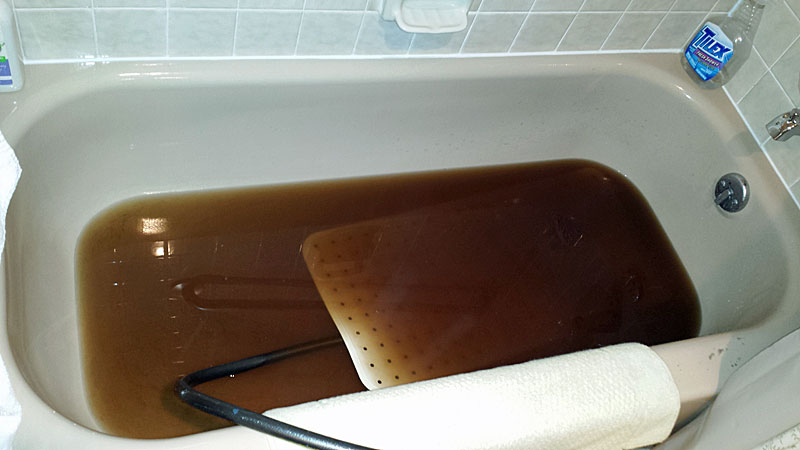Hello, I have a 10-12 years old 80 gallon water heater, if only used maybe 2 weeks a year and it smells like rotten eggs, what will the anode look like when removed? It has only been flushed somewhat by running the water. The
elements seem to be okay as it heats very well.
Will the anode be eaten up due to stagnation or will it be in pretty good condition? Should I get a new heater?
This heater is down near Myrtle Beach as far as the water location. City Water, Good water or Bad in this area of country?
elements seem to be okay as it heats very well.
Will the anode be eaten up due to stagnation or will it be in pretty good condition? Should I get a new heater?
This heater is down near Myrtle Beach as far as the water location. City Water, Good water or Bad in this area of country?

